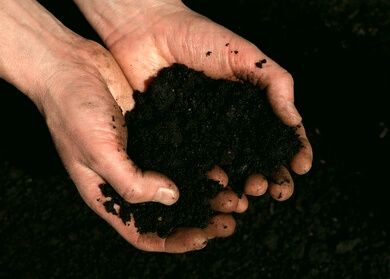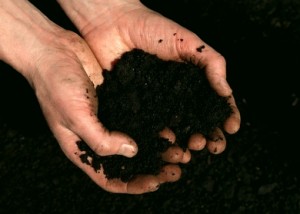
The natural system works well, supremely well, when left untampered with. A delicate thread holds that which is alive and that which is dead together on this planet we call home.
Matter rots and returns to the earth. In the process, it nourishes it and prepares the ground for new planting. The rich soil teems with life, microorganisms and organic matter full of nutrients, everything necessary to grow vibrant plant life.
Farmers of days gone by lived and died by the cycle of the earth, they were content with the rain when it came and the sun when it shone. They understood and respected the earth, and knew that there was only so much that they could control; they had to trust. They planted by the moon and by the seasons and learned how to rotate and intermingle vegetation with each other for the most profitable yield and strongest plants. They understood.
With advancing technology, the string between the ground and man was severed. The connection, the communication – it has all been broken. There is no trust, only a desire to make things better.
The sad and frustrating irony of this mentality is that we have succeeded only in robbing the ground of the very thing that it requires to be better. Today’s agriculture looks like something out of science fiction movie. Huge industrialized farms that rely on synthetic chemicals for productivity have replaced quaint farmhouses and acres of healthy crops blowing in the wind.
Crop diversity is essential to soil health. When the same crop is grown in the same place year after year, it reduces biological diversity. Monocropping, it is called, and America is extremely good at it.
Erosion results when we don’t respect the land. With erosion, more of the vital organic matter in the soil, along with nutrients, are washed away. Erosion reduces nutrient availability, impairs root growth, water retention, and plant fertility. This just results in further erosion and the vicious cycle continues.
In Iowa during 2008, more than half of the counties in the state lost an average of 7 tons of soil per acre due to flooding. It can take up to 500 years to build one inch of topsoil. Do you think we take it for granted?
Monocropping and the use of chemicals in farming began in the 1950’s, which perpetuated erosion and water contamination. Modern methods to enhance the soil have negative impacts on soil health. They can acidify the soil and destroy biological activity. Synthetic fertilizers are sprayed on plants but do not provide any sustaining materials for the soil.
We have created a condition where crop survival is dependent on pesticides, and this creates another vicious cycle. As soil quality is reduced so is its ability to defend against pests. Pesticides are applied, but they lower the biological diversity within the soil, meaning fewer beneficial organisms to keep the pathogenic organisms healthy.
When this happens, more pesticides have to be applied. Poor soil results in increased pesticides, more cost and a negative impact on the soil and crop quality.
Fact: Prior to World War ll, farmers used manure to enrich the soil and crop rotation to protect against erosion and to increase soil health.
Why do we treat the soil, plants and livestock as we do ourselves? When we get sick, we get pharmaceuticals, when the soil gets sick we spray chemicals on it. There is no prevention, no time, energy or effort put into understanding how the natural cycle works. As a result, there is much suffering. Surely, there is a better way.
Organic is a Better Way
 Organic farming is closer to the age-old natural cycle of decomposition and new life. It is all about sustainability. Organic farmers understand that just like there are strategies for managing human health, there are also strategies for managing soil health.
Organic farming is closer to the age-old natural cycle of decomposition and new life. It is all about sustainability. Organic farmers understand that just like there are strategies for managing human health, there are also strategies for managing soil health.
Organic fertilizer contains 3% nitrogen, while chemical fertilizer contains 32% nitrogen. Organic farming practices seek to find a balance, conventional farming practices create conditions where there is an over-accumulation of certain nutrients. It is like what happens when you eat a whole box of candy. You may get an enormous energy burst, but absolutely no nutrients that are needed to sustain life.
Everyone benefits when effort is made to improve and care for the soil. Farmers who grow organic food are trying to understand the best ways to work in cooperation with nature, not against it.
They want to feed the earth to produce the best tasting and most nutrient dense food. They are patient and willing to stand firm on what they believe is best for the earth and for those who inhabit it.
While organic farming is still relatively new, the practice is growing as more and more people begin to truly understand what it take to produce high quality food. They are learning that if we take care of the soil, it will take care of us.
Support your local organic farmers, reach out and let them know how much you appreciate their efforts. The United States government does not subsidize organic farmers, and the actual practice can be highly labor intensive and initially quite costly. Those that make a decision to care for the earth and are committed to producing the highest quality food possible deserve our respect.
Visit EatWild.com to find farmers near you who are committed to making a difference for everyone.
-The Alternative Daily
Sources:
http://nature.berkeley.edu/~miguel-alt/modern_agriculture.html

